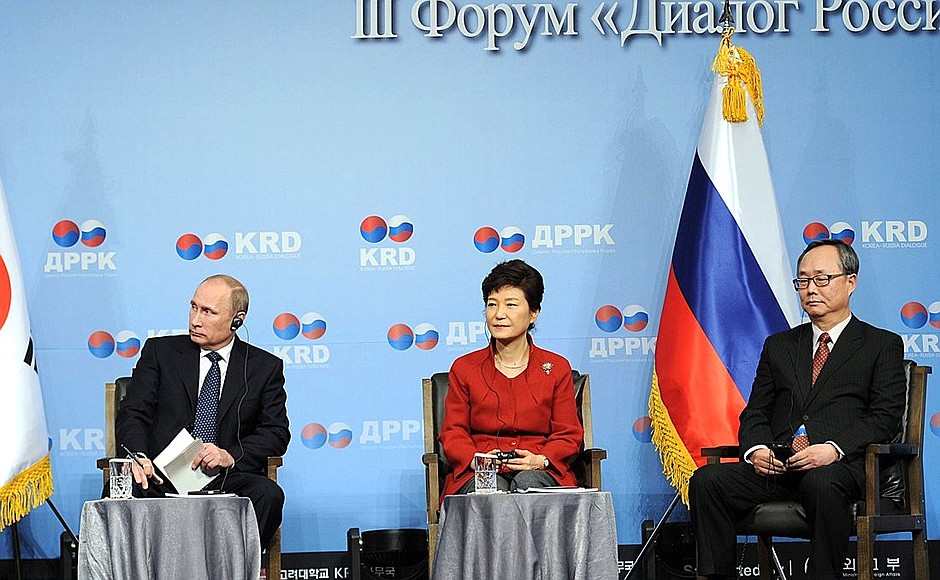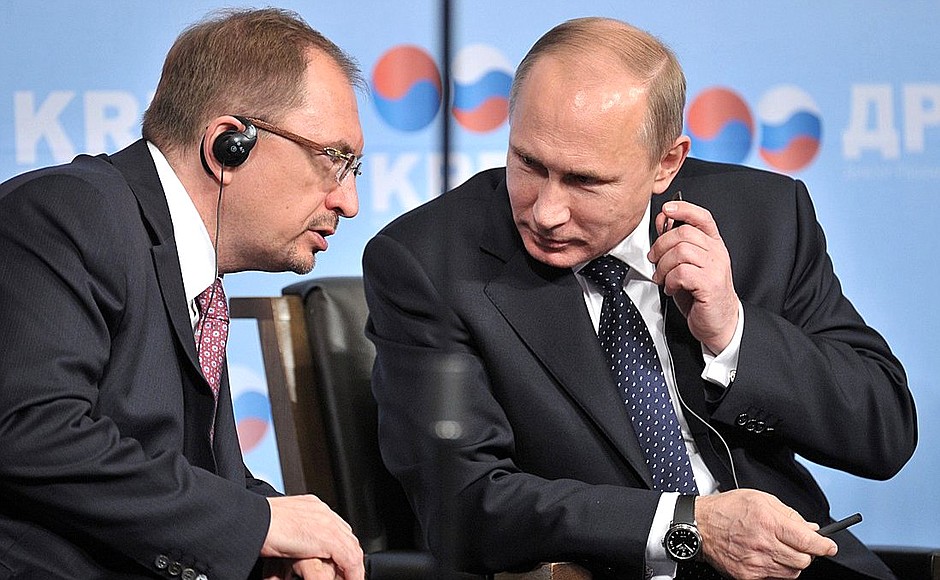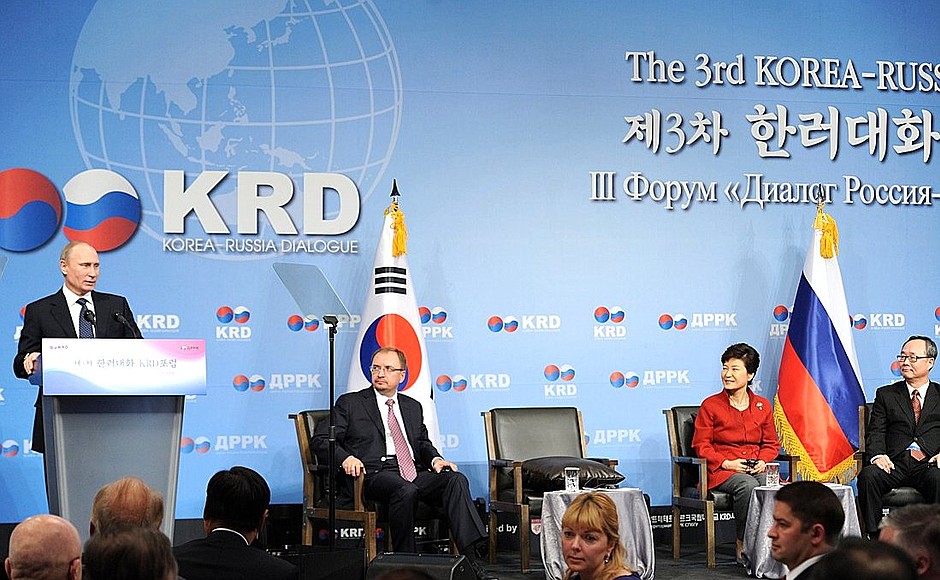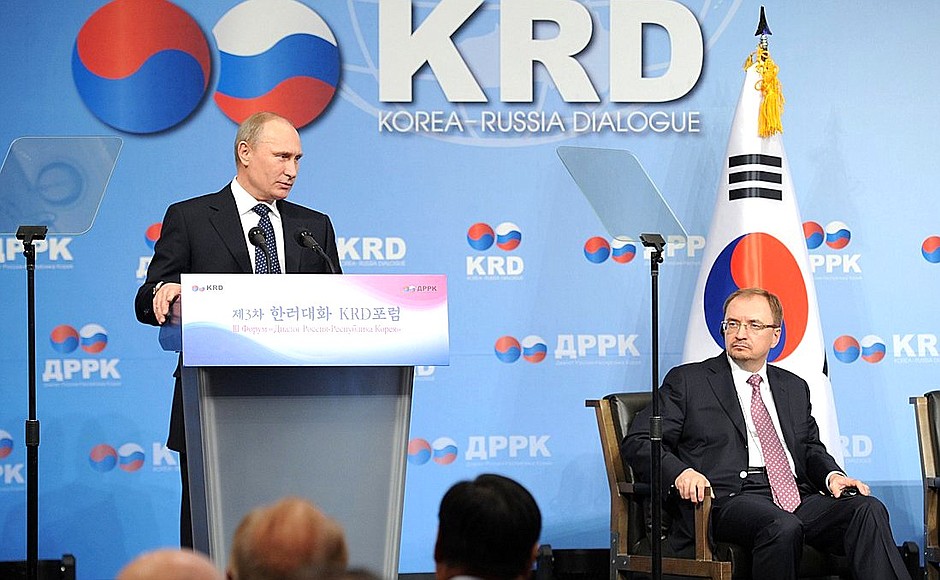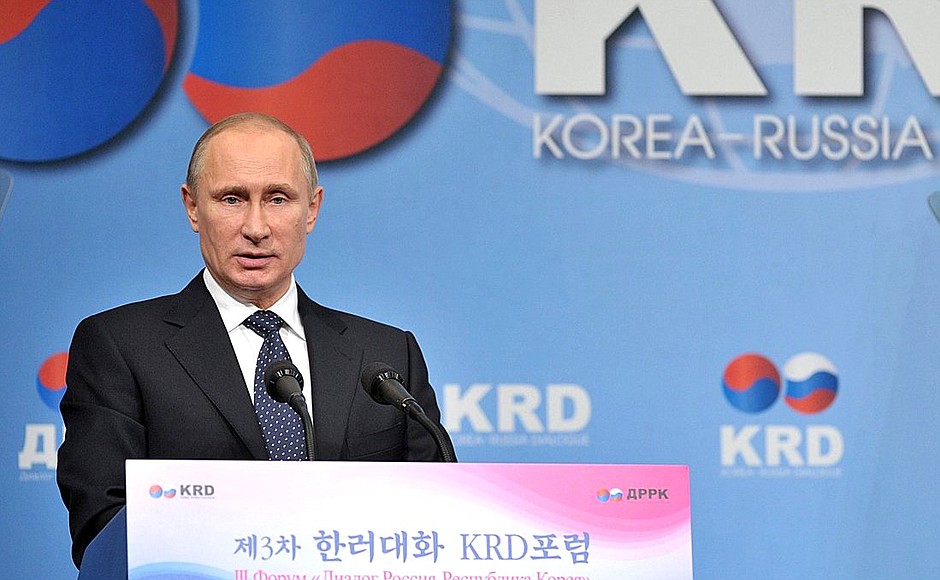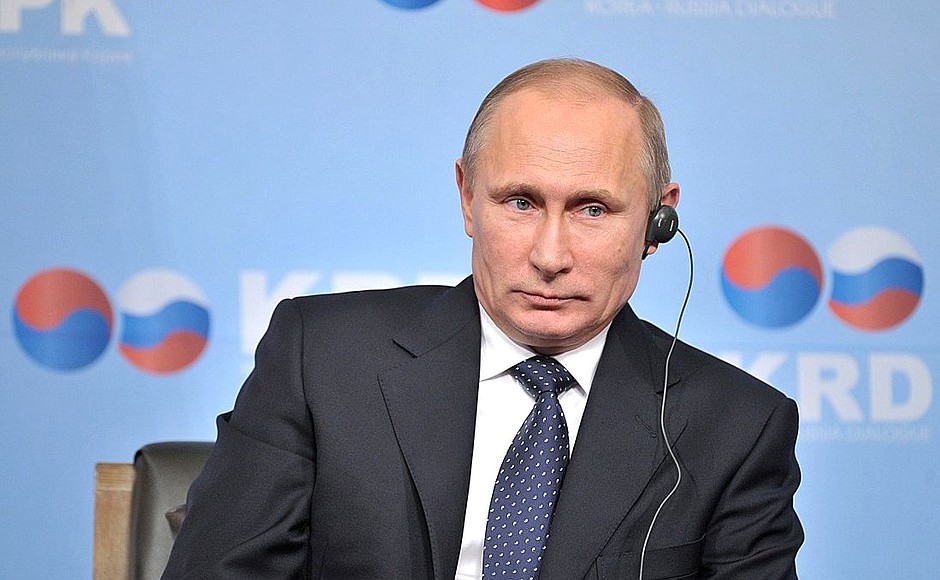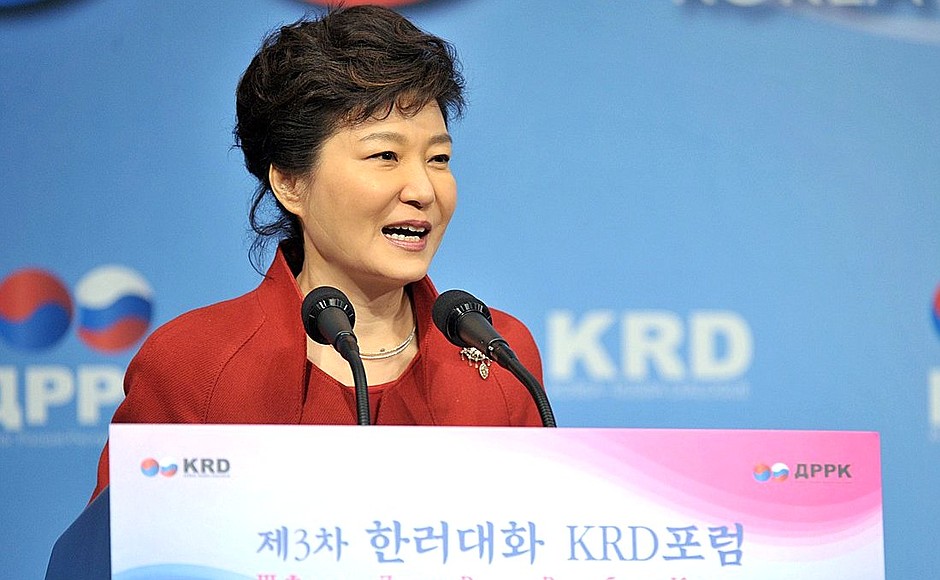See also
President of Russia Vladimir Putin: Ms President, friends,
This is your forum’s third meeting. Each meeting so far has been a success and demonstrated the great importance of ties between the public in our two countries. We consider it important that official contacts between Russia and the Republic of Korea are bolstered by civil society cooperation.
We were also present, I in any case, at a meeting with businesspeople today too. The co-chairman on the Russian side said that some taxation-related issues are being discussed at this forum. In other words, issues often overlap, but this forum has its own independent importance too. Your discussions and proposals unquestionably enrich Russian-Korean cooperation and give it new substance.
Our Korean colleague spoke just now about the proposals you are drafting. I think they are very interesting and concrete in nature, and they deserve our support.
This forum provides a very useful mechanism for facilitating business community ties, as I said just before. We expect to see continued expansion of our humanitarian ties too through the plans we have outlined for 2014–2015. We will hold reciprocal years of visiting Russia and the Republic of Korea. I agree with the previous speakers too that this should particularly concern young people, who will have the task of continuing the work begun by the agreements we have reached.
The Russia-Republic of Korea Dialogue’s initiatives to establish a multilateral East Asia students’ forum and the 100 Young Leaders’ Club will also give a new boost to exchanges.
The agreement signed at today’s summit on simplifying visa rules – essentially introducing visa-free travel for short-term visits of up to 60 days – and the agreement on establishment and operation of cultural centres will likewise help to intensify our cooperation.
We will continue to encourage contacts between our civil societies and create a good environment for bringing our peoples closer together. In this work we can rely on the solid foundation of our cultural traditions and our respect for the common pages in our history.
I would like to take this opportunity to express my sincere gratitude and thanks to our Korean friends, especially the residents of Incheon, for the respect they give the memory of the Russian sailors and the feat accomplished by the crews of the cruiser Varyag and the gunboat Koreyets. We are grateful to the Republic of Korea for returning to Russia on loan the flag from the cruiser Varyag. The chance for Russia’s people to see this relic is something of great moral and spiritual importance.
I thank the forum’s organisers – St Petersburg State University and Seoul-based Korea University, and also all of the Russian and Korean participants for their productive work.
It was already mentioned here that a monument to Alexander Pushkin has been unveiled in Seoul. At the unveiling ceremony I said that there was probably no greater gesture than this to warm a Russian’s heart. Whether jokingly or in all earnestness, we say in Russia that Pushkin is everything to us. This really is true in a sense, seeing as he is the father of the modern Russian language.
We think that just having this monument will help to inspire interest in Russian culture and literature. In this respect, we cannot but recall the ending of one of the great poet Pushkin’s key works, Yevgeny Onegin, in which Pushkin describes the personal tragedy of the hero, Yevgeny Onegin, who was unable to build good relations with the people around him.
If we remember what Pushkin teaches us in his works, and build different kinds of relations in the XXI century, relations built on trust and respect for each other, we will be able to resolve the North Korean nuclear issue, develop good relations between Russia and Korea, and play an active part in developing relations in Asia and in the world in general.
Thank you very much for this work together.
